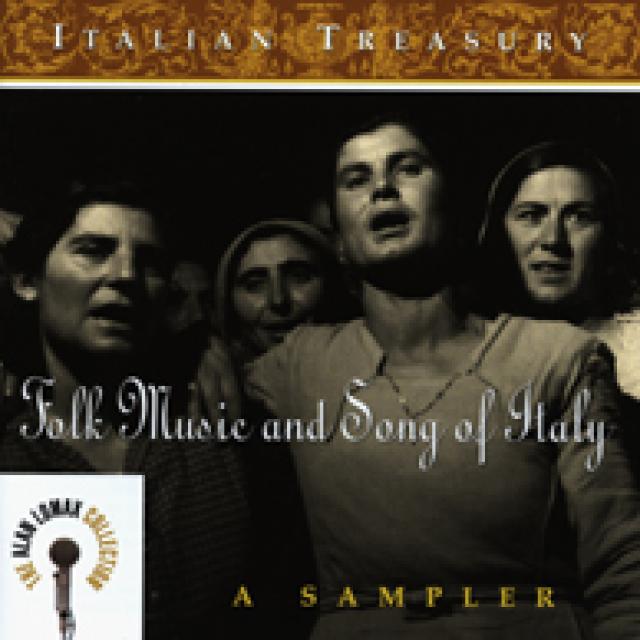
|
Folk Music and Song of Italy
Recorded in 1954 by Alan Lomax and Diego Carpitella with additional recordings by Ernesto de Martino, Giorgio Nataletti, and Antonio Santoni-Ruju
Original notes by Alan Lomax; introduction by Anna Wood and Goffredo Plastino.
This classic anthology, first issued in 1957, samples the many traditional musical cultures of pre-industrial, pre-technological Italy. Representative in the broadest possible sense, it covers Italy from Sicily to the Alps and restores to us, in all its startling beauty and variety, the music of shepherds, laborers, farmers, fishermen, artisans, city folk, and mountaineers.
“Lots of wonderful singing and playing… I would recommend it to everyone.” —Musical Traditions
|
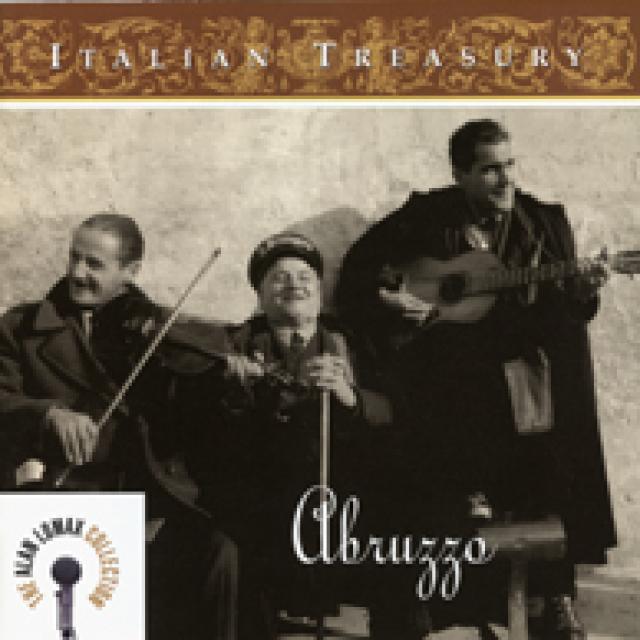
|
Abruzzo
Recorded in 1954 by Alan Lomax
Notes by Goffredo Plastino, Adriana Gandolfi, and Domenico Di Virgilio
“Love begins with fine singing,” says a line from an Abruzzese song. From the mountainous region of independent people in South-Central Italy come these choral songs, holiday rites, incantations, funeral laments, ballads, and saltarellos that vividly evoke a vanishing rural life in which every activity was accompanied by song.
“A ‘must have’ CD for anyone interested in Italian singing… Excellent!” —Musical Traditions
|
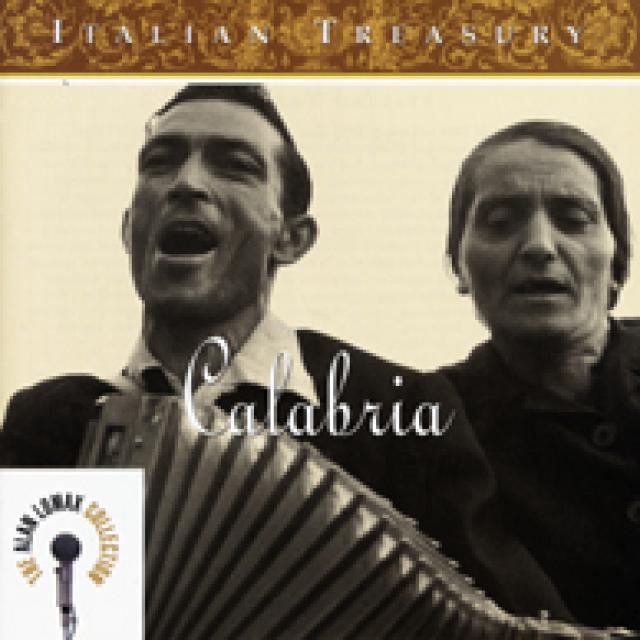
|
Calabria
Recorded in 1954 by Alan Lomax and Diego Carpitella
Notes by Goffredo Plastino, Vito Teti, and incorporating notes by Alan Lomax
The profoundly fascinating and musically rich universe of Calabria is revealed to us in the work chants of tuna fishermen from Vibo Valentia; the cries of the sword fishermen of Scilla; polyphonic songs of work and celebration, of love and hatred; and hypnotic tarantellas for bagpipes and tambourines.
“Exquisite immediacy and variety, not mentioning the inspired greatness of most of its examples.” —Robert Catalano
|
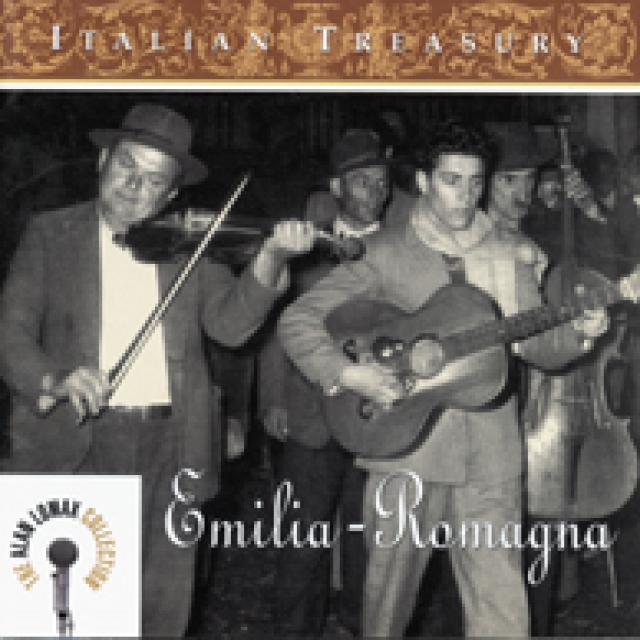
|
Emilia-Romagna
Recorded in 1954 by Alan Lomax
Notes by Gian Paolo Borghi, Tullia Magrini, and Ellen Harold
From the mountains of Emilia-Romagna come these songs of farmers and female rice workers; ballads of World War II partisan struggle; age-old New Year’s songs; dance tunes; and excerpts from opera-like May rituals redolent of the poetry of the Italian Renaissance. A collection recorded just as industrialization was forever changing the fabric of Northern Italian rural life.
“There is no denying the power and rough beauty of these CDs.” —Roots World
|
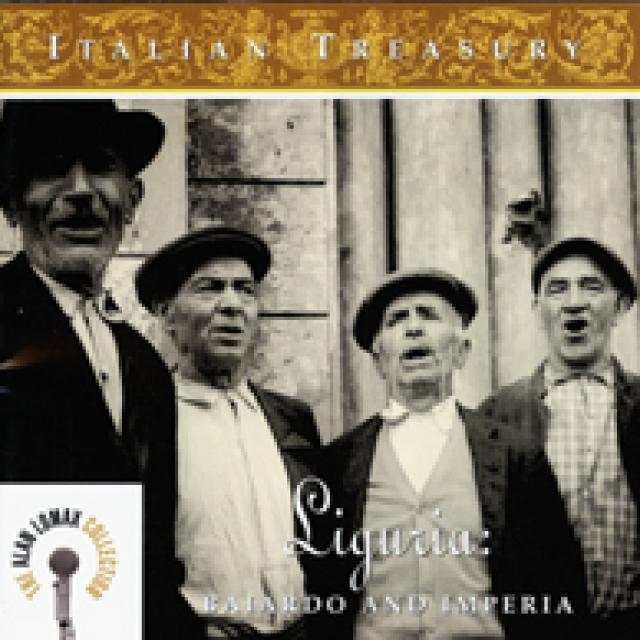
|
Liguria: Baiardo and Imperia
Recorded in 1954 by Alan Lomax
Introductions by Edward Neill and Goffredo Plastino; notes by Mauro Balma
Historic recordings featuring the spectacular vocal polyphony of western Liguria, a region of ports and hill towns, rich in folkloric traditions. This collection features sung narratives, including selections from the remarkable “A barca,” ceremonial ballad cycle from Baiardo, and instrumental dances from the port city of Imperia.
“An exceptional delight to experience.” —Sing Out!
|
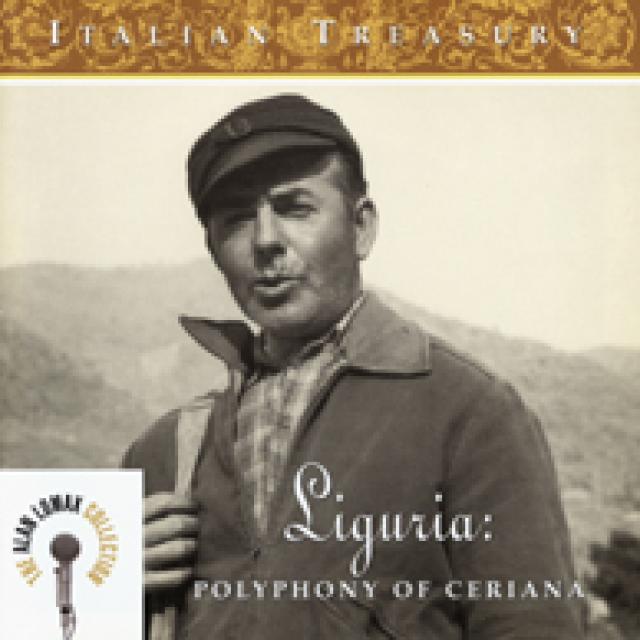
|
Liguria: Polyphony of Ceriana
Recorded in 1954 by Alan Lomax
Introductions by Edward Neill and Goffredo Plastino; notes by Mauro Balma
Recordings made during Alan Lomax’s 1954 journey to Liguria’s western Riviera, featuring performances of breathtaking vocal polyphony in the trallallero style by the Compagnia Sacco from the mountain village of Ceriana.
|
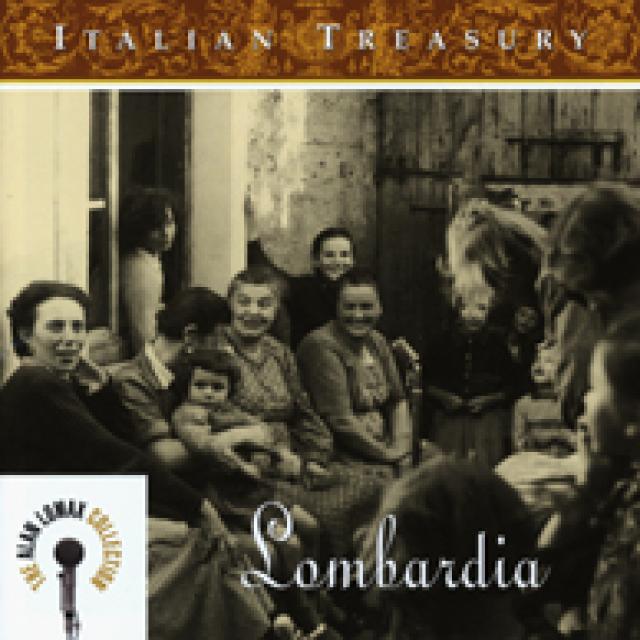
|
Lombardia
Recorded in 1954 by Alan Lomax and Diego Carpitella
Notes by Goffredo Plastino, Bruno Pianta, and Ellen Harold
Alan Lomax and Diego Carpitella’s historic 1954 recordings from Lombardy run the gamut of folk styles and traditions, from jovial wedding and carnival songs to characteristic Italian choral renderings of classic Child ballads, the enchanting calls of songbird hunters, and a panpipe orchestra playing marches, waltzes, and the overture to Verdi’s Rigoletto.
“. . . maybe it slipped under your radar screen, but it certainly will raise an eyebrow. Chances are you’ve never heard this version of ‘La donna è mobile’ from the Verdi opera Rigoletto . . . played by pan-pipers from the region of Lombardy in northern Italy . . . Amateur ornithologists beware. The collection also includes the sound of bird lures played by Italian hunters to imitate the calls of the local birds.” —The World, PRI / BBC
“A most enjoyable record.” —Musical Traditions
|
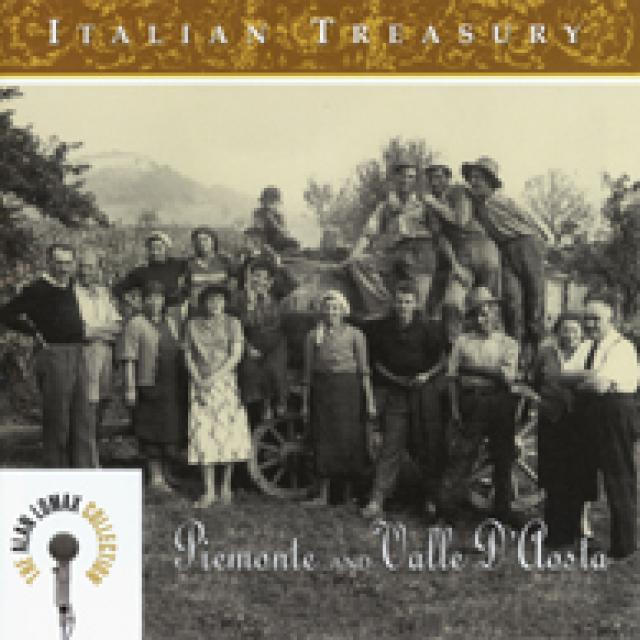
|
Piemonte and Valle D’Aosta
Recorded in 1954 by Alan Lomax
Notes by Franco Castelli, Goffredo Plastino, and Ellen Harold
Songs of love and war, marriage and imprisonment, emigration and poverty; classic ballads; sung debates; accordion tunes; and dances performed by lively brass bands from the Piedmont and Valle d’Aosta in Northeastern Italy.
“Listening to much of this CD is deeply evocative ... and makes me want to hop on a cheap flight there right now!” —Musical Traditions
“For pure listening pleasure, Italian Treasury: Piemonte and Valle d’Aosta is also one of the best of Lomax’s library.” —All Music Guide
|
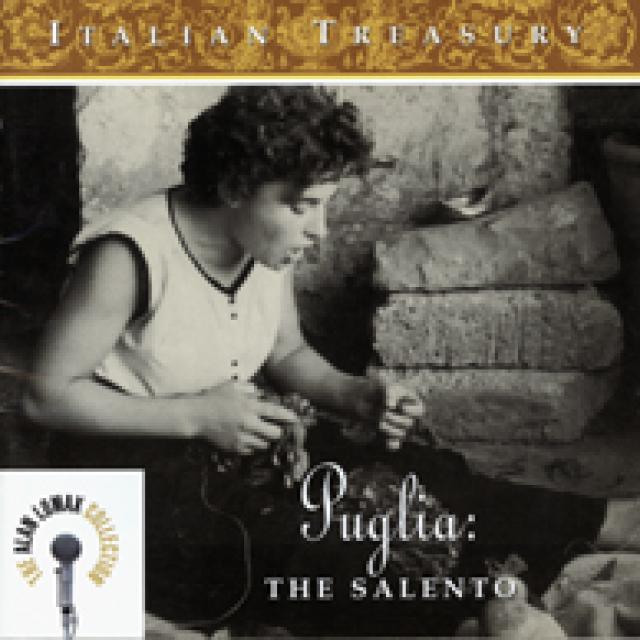
|
Puglia: The Salento
Recorded in 1954 by Alan Lomax
Notes by Luisa Del Giudice and Sandra Tarantino
Instrumental and vocal polyphony from the Salento, one of the most beautiful regions of Puglia — the southeasternmost tip of Italy’s heel, a crossroads between East and West, and the home of a unique heritage of traditional music. Songs of love and disdain, erotic and satiric songs, work songs and funeral laments performed in Salentine dialect and in Griko.
|
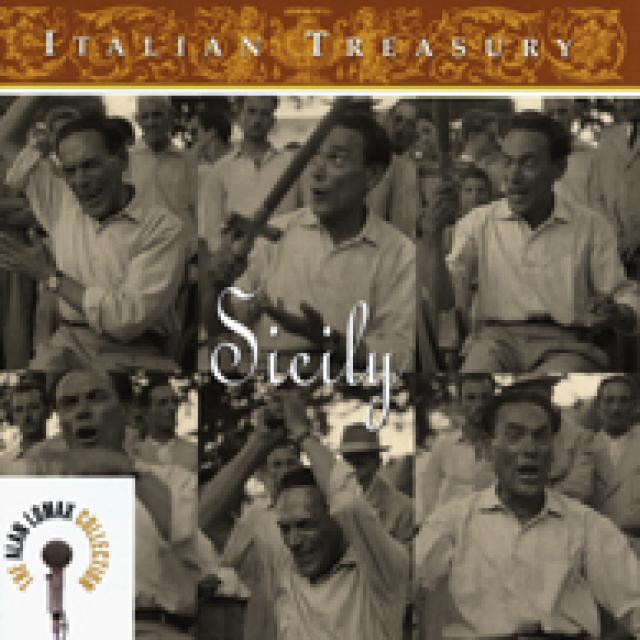
|
Sicily
Recorded in 1954 by Alan Lomax and Diego Carpitella
Notes by Goffredo Plastino and Sergio Bonanzinga, incorporating original notes by Alan Lomax
The voices and instruments of peasants, fishermen, shepherds, oppressed salt and sulfur miners, cart drivers, cuntastorie, and strolling players bring us murder ballads, dance music, lullabies, as well as songs of love, work, and devotion connected to the yearly round and born of the colorful and dramatic Sicilian past. Includes a 15-minute excerpt of the storytelling of Roberto Genovese, the last of the jongleurs, reciting the epic, I reali di Francia (Orlando), in the piazza, to sound effects made by a wooden sword.
“An amazingly rich trove of stunning beauty and vast interest.” —Green Man Review
|
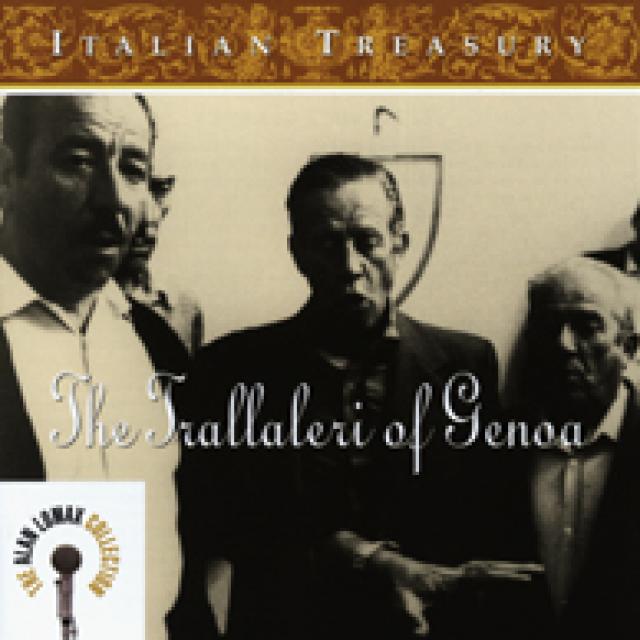
|
The Trallaleri of Genoa
Recorded in 1954 by Alan Lomax
Notes by Edward Neill, and Goffredo Plastino, incorporating original notes by Alan Lomax
Recorded in the Ritrovo dei Facchini and Bar Tugni, Genoese longshoremen in their cups effortlessly sing in the thrilling, full-throated, multi-parted style known as trallalero, a specialized outgrowth of North Italian polyphony found only in Genoa and along the mountainous coast of Liguria. The parts, demonstrated on this disc, are falsetto, tenor, chitarra (“guitar”), baritone, and bass. Alan Lomax considered the trallalero singers “the most perfect choristers in Western Europe.”
“The trallalero tradition indeed finds a place among the most interesting examples of organized vocal sounds both in Europe and around the Mediterranean basin.” —Roberto Catalano
“I would recommend The Trallaleri of Genoa to absolutely everyone.” —Musical Traditions
|











